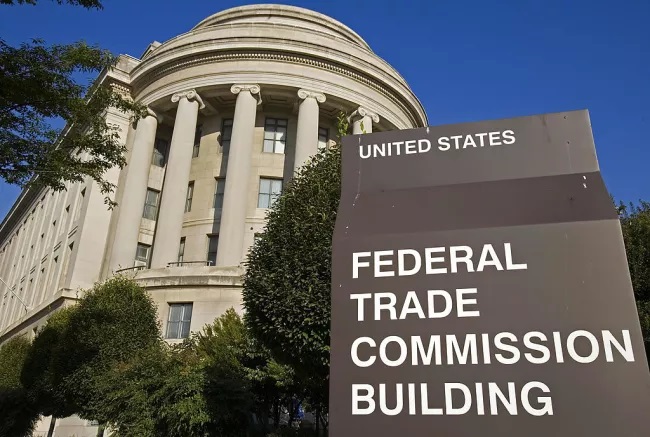IAB: Proposed FTC Rules Could `Criminalize the Internet’
The Interactive Advertising Bureau argues that FTC proposals on `commercial surveillance’ could reduce digital advertising by billions of dollars

WASHINGTON, D.C.—The Interactive Advertising Bureau has hit back strongly against the Federal Trade Commission’s Advanced Notice of Proposed Rulemaking (ANPR) relating to `commercial surveillance’ by arguing that the move would reduce digital advertising by billions of dollars and that the agency is greatly exceeding its authority.
In a filing with the FTC, IAB’s executive vice president for public policy Lartease Tiffith complained that the FTC is redefining the ordinary collection, aggregation, and analysis of consumer data as “commercial surveillance”, a move that an IAB press release described as “a definition so broad potential FTC rules could criminalize the internet itself.”
In August, the FTC said it was exploring rules to crack down on harmful commercial surveillance and lax data security relating to targeted advertising and the handling of consumer data.
“Firms now collect personal data on individuals at a massive scale and in a stunning array of contexts,” said FTC Chair Lina M. Khan in a statement. “The growing digitization of our economy—coupled with business models that can incentivize endless hoovering up of sensitive user data and a vast expansion of how this data is used—means that potentially unlawful practices may be prevalent. Our goal today is to begin building a robust public record to inform whether the FTC should issue rules to address commercial surveillance and data security practices and what those rules should potentially look like.”
The move could have an important impact on targeted and digital advertising, which would seem to fit into the agency’s definition of “commercial surveillance” as the business of collecting, analyzing, and profiting from information about people.
In response, the IAB filing noted that the "Internet is built on the continuous exchange of data between devices and servers – without these data exchanges, the Internet and its social, cultural, economic, and personal benefits would not exist."
The filing also highlighted the impact of digital advertising has on supporting free and low-cost online content and services.
Get the TV Tech Newsletter
The professional video industry's #1 source for news, trends and product and tech information. Sign up below.
“Data-driven advertising greatly benefits consumers by supporting the U.S. economy and creating and maintaining American jobs,” the IAB filing said. “Data-driven advertising, and the Internet economy it supports and drives, contributed $2.45 trillion to the United States’ gross domestic product (GDP) in 2020, accounting for 12 percent of GDP….Additionally, 2.1 million e-commerce companies were operating in the United States in 2020, generating $715 billion in revenue. Many of those millions of companies are small businesses and sole-proprietorships that are able to achieve success and grow their customer base thanks to data-driven advertising technologies that lower barriers to entry and broaden geographic reach.”
If the FTC restrictions were put in place, the IAB said “Regulations restricting data-driven advertising could likewise have devastating consequences on the over 17 million American jobs that are supported by data-driven advertising. Most of those jobs were created by small firms and self-employed individuals in all 50 states and across many sectors. In fact, self-employed individuals and people working in small teams of five or fewer people made up 19% of the Internet job total.”
“Further, if the Commission’s regulations resulted in a ban of personalized or targeted advertising, it is likely that between `$32 billion and $39 billion of advertising and ecosystem revenue would move away from the open web by 2025,’” the IAB said.
In the filing the IAB also argued that the FTC has no authority to label “essentially all practices involving the use of ‘consumer data’ to be unfair or deceptive,” a question of “vast economic and political significance” reserved for Congress, according to laws governing the FTC and Supreme Court doctrine.
In fact, Congress is currently debating a nationwide federal privacy law addressing many of the same issues, and states are deciding their own rules, or declining to, underscoring the FTC’s lack of authority, the IAB argued.
“IAB represents over 700 leading companies across the digital advertising industry, from brands and publishers to advertising agencies and technology firms. We’re ready to offer our collective expertise and perspective to improve the FTC’s understanding of digital advertising in the modern economy, including small businesses and every American relying on the ad-supported internet for news, information, entertainment, commerce, and community,” said David Cohen, CEO, IAB.
The group also stressed that it was a founding member of Privacy for America, an industry initiative to protect online privacy, jobs and economic growth and IAB supports FTC rulemaking in key areas and stronger enforcement.
The framework would establish clear rules of the road for individuals, businesses, and law enforcement, and stop harmful and unexpected data practices, while continuing the benefits of digital advertising, the group said.
George Winslow is the senior content producer for TV Tech. He has written about the television, media and technology industries for nearly 30 years for such publications as Broadcasting & Cable, Multichannel News and TV Tech. Over the years, he has edited a number of magazines, including Multichannel News International and World Screen, and moderated panels at such major industry events as NAB and MIP TV. He has published two books and dozens of encyclopedia articles on such subjects as the media, New York City history and economics.

